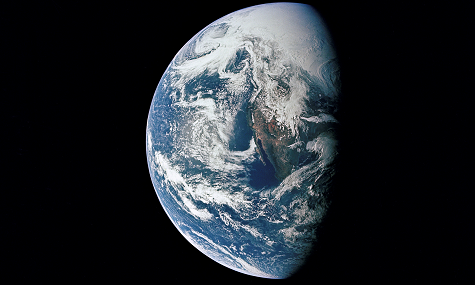
Today is Earth Overshoot Day. It’s the day when, as a planet, we collectively reach the limit of how much resources we can use this year without jeopardising the planet’s ability to replenish those resources for the future.
Take a lake full of fish: there’s a limit to the amount of fish that can be caught each year while still leaving enough to reproduce and build back the stock for next year. Today we hit that limit, for the planet as a whole.
Our shared natural resources – from fish to fuel – are vital to life on Earth. But from today until the end of 2015, we’re building up a debt to the planet: one that manifests itself in dwindling biodiversity, impoverished soils and the threat of irreversible climate change.
By 31December, we’ll have used the equivalent of 1.6 planets’ worth of resources. At a time when politicians talk daily of a need to live within our means fiscally, we’re a long way from living within our means ecologically.
The UK is one of the worst offenders. Countries like ours place a disproportionate burden on the planet. If others consumed as much as we did, Earth Overshoot Day would have been and gone before the end of May.
But good lives don’t have to cost the Earth. In NEF’s Happy Planet Index we look at the ecological footprint of each country and compare it with average life expectancy and wellbeing, measured in terms of people’s reported experience of life.
When you look at what is achieved with resource use in terms of human wellbeing, resource intensive countries such as our own don’t always fare best.
People in Costa Rica, for example, consume around half the amount of resources per head as we do in the UK, and a quarter of that in the US. And yet the wellbeing and life expectancy of people living in Costa Rica is about the same as that of people in the UK – and higher than that of people living in the USA.
There are many reasons for this, including extensive use of renewable energy, innovative solutions to protecting rainforests and indigenous communities, and relatively strong investment in public services such as health and education.
But it also highlights that escalating levels of private consumption as seen in wealthier countries does not lead to higher levels of wellbeing.
Today, the Global Footprint Network has identified four main areas where there is potential to reduce our footprint and improve lives in the process.
Better infrastructure to reduce the need for car travel offers triple dividends in terms of reduced carbon emissions, better health and even higher subjective wellbeing. Reduced meat consumption would reduce land use and improve health. Sustainable fisheries would ensure jobs and livelihoods of those who work on them, rather than leaving them unemployed once they’ve drained stocks.
We may now find ourselves in the red, but a sustainable future is closer than we might think. Here in the UK, local renewable energy schemes such as Brixton Energy are already reducing emissions and placing an important resource in the hands of local communities to manage.
Change is possible, but only if we recognise the problem. This is the debt we can’t ignore.
source

More Stories
Navalny’s death used to hide western failures in Ukraine and their support for Israel’s genocide
Gifts from Gaza
Vulture capital circles over the corpse of Ukraine…